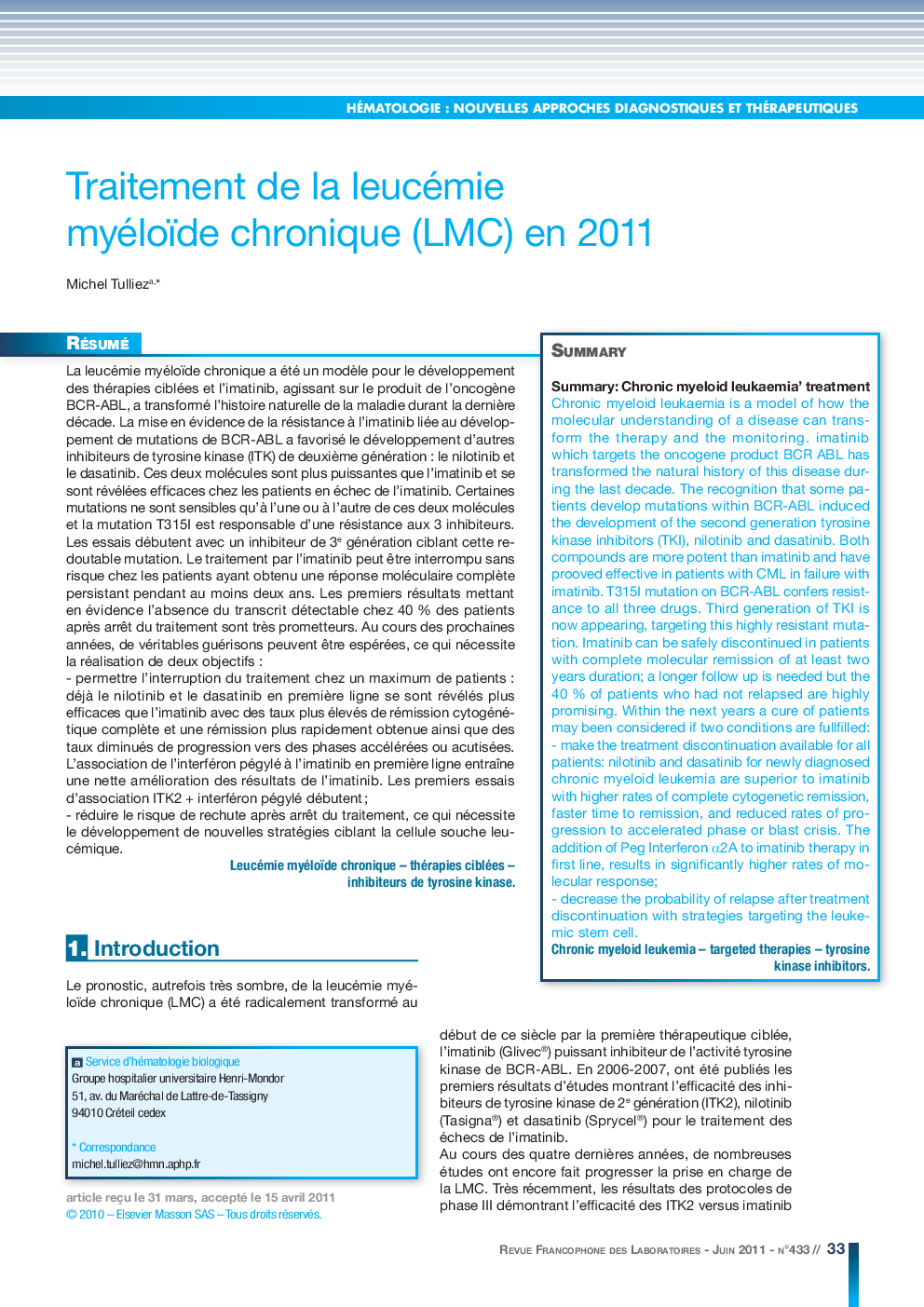| Article ID | Journal | Published Year | Pages | File Type |
|---|---|---|---|---|
| 7656216 | Revue Francophone des Laboratoires | 2011 | 8 Pages |
Abstract
Chronic myeloid leukaemia is a model of how the molecular understanding of a disease can transform the therapy and the monitoring. imatinib which targets the oncogene product BCR ABL has transformed the natural history of this disease during the last decade. The recognition that some patients develop mutations within BCR-ABL induced the development of the second generation tyrosine kinase inhibitors (TKI), nilotinib and dasatinib. Both compounds are more potent than imatinib and have prooved effective in patients with CML in failure with imatinib. T315I mutation on BCR-ABL confers resistance to all three drugs. Third generation of TKI is now appearing, targeting this highly resistant mutation. Imatinib can be safely discontinued in patients with complete molecular remission of at least two years duration; a longer follow up is needed but the 40% of patients who had not relapsed are highly promising. Within the next years a cure of patients may been considered if two conditions are fullfilled:
Keywords
Related Topics
Physical Sciences and Engineering
Chemistry
Analytical Chemistry
Authors
Michel Tulliez,
